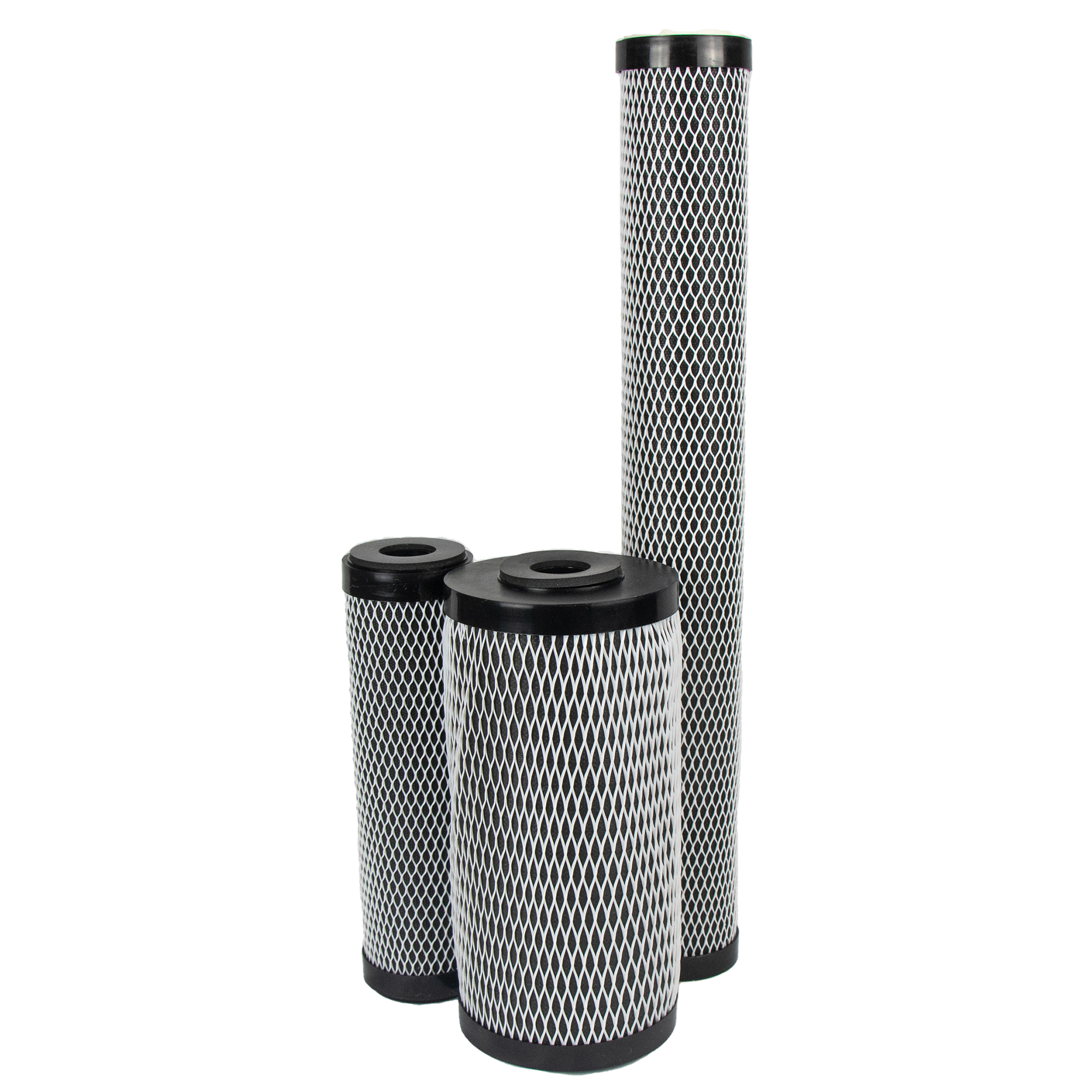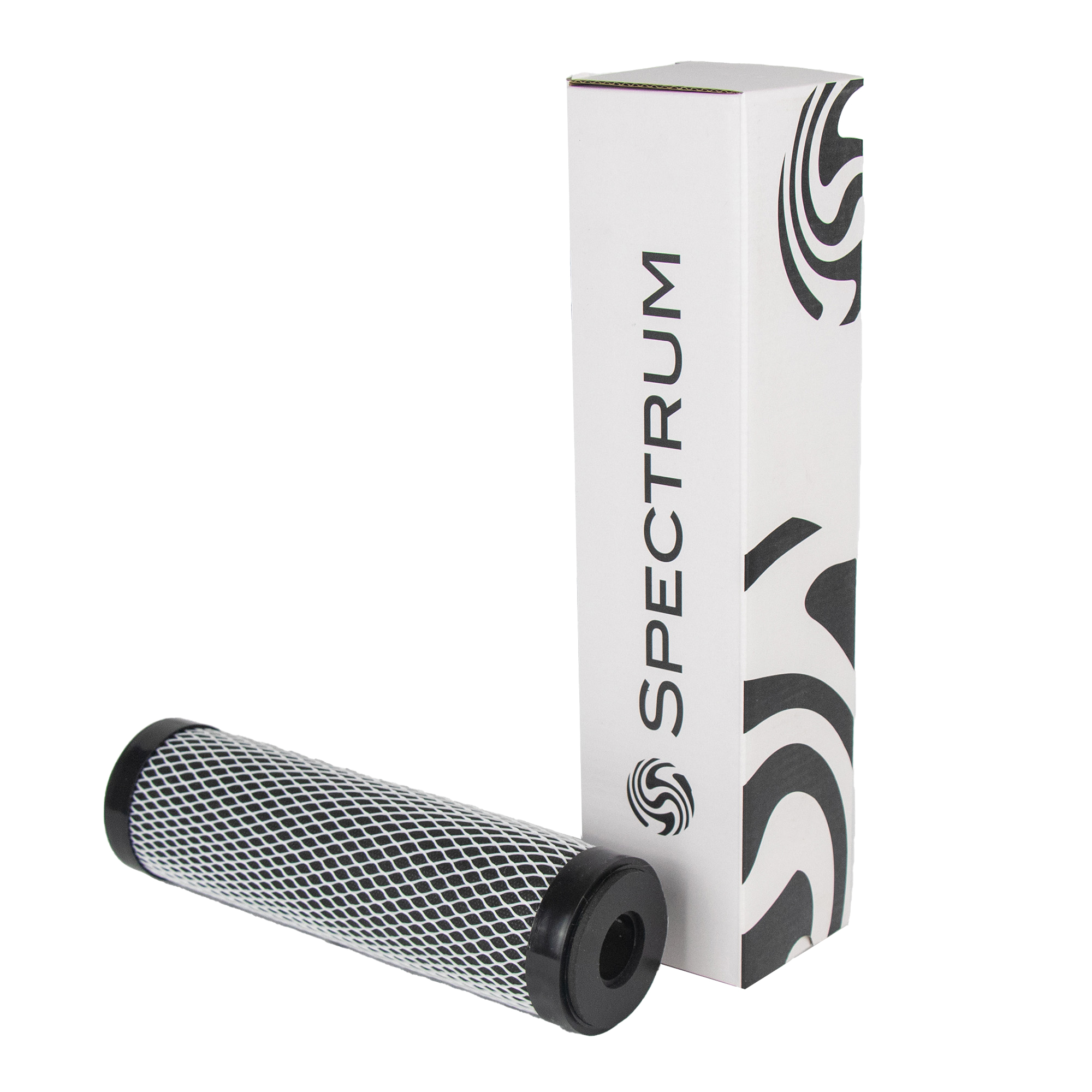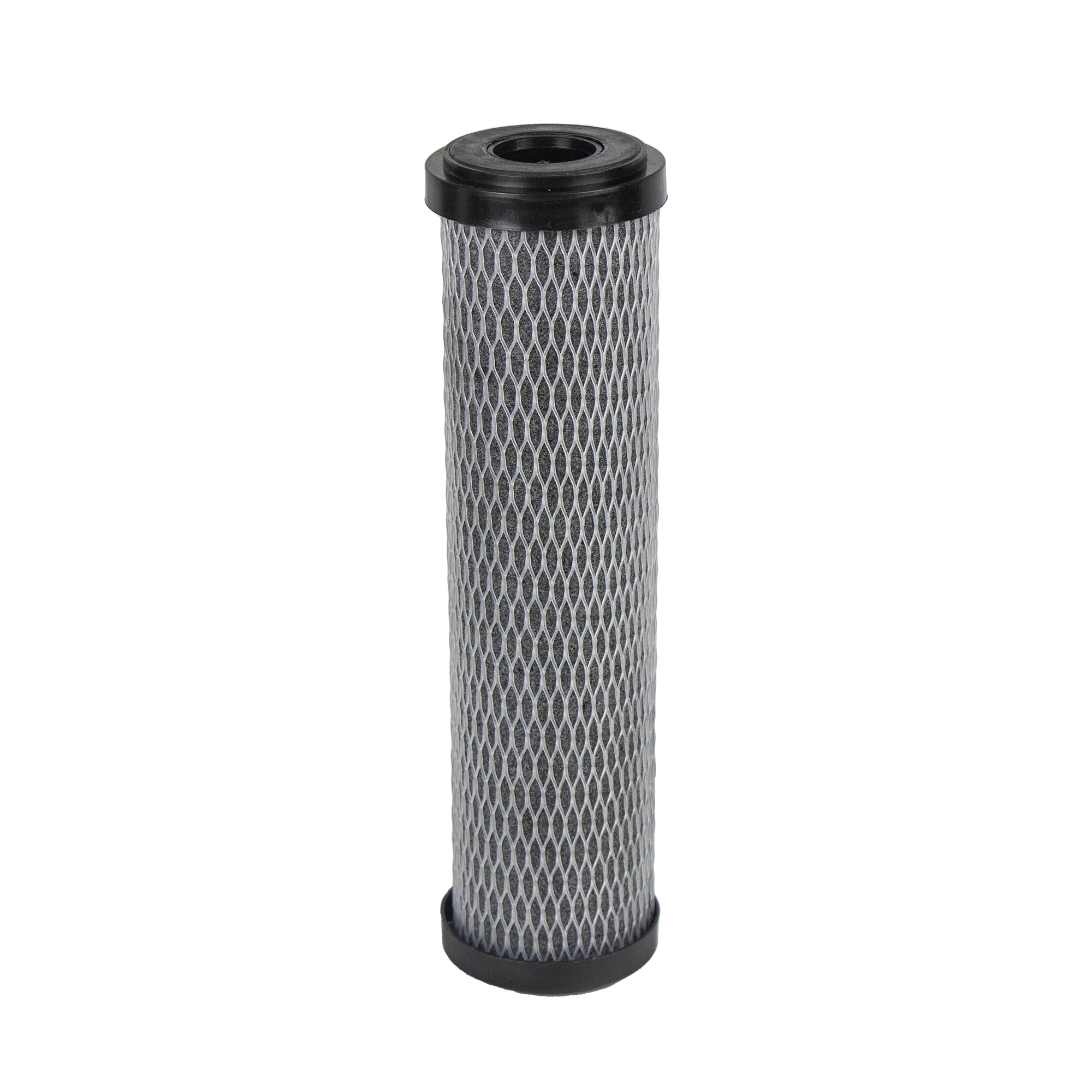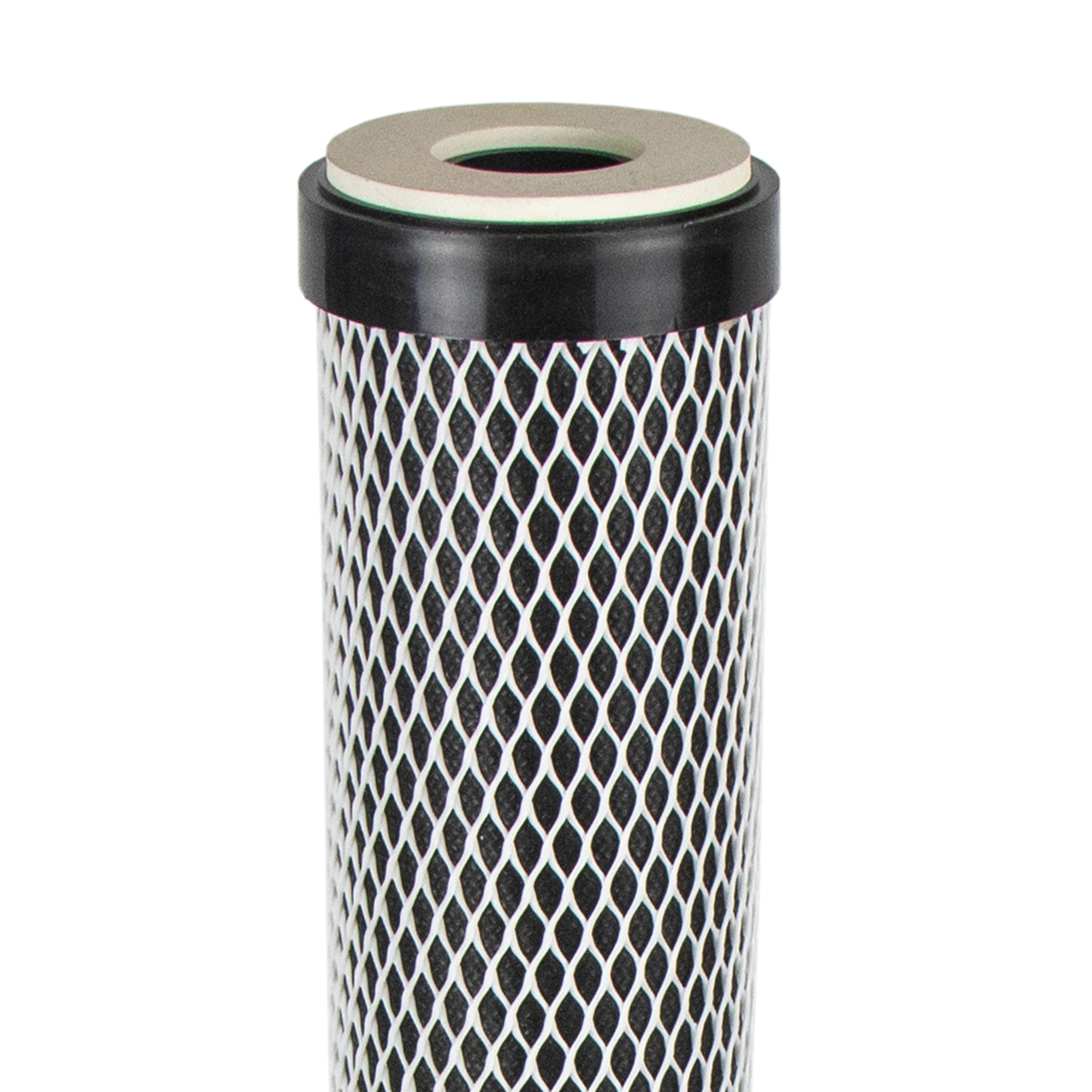OilOut–99 (SRIF)
- Effectively absorbs dissolved and dispersed hydrocarbons efficiently from water, absorbing three times its own weight before changeout is required
- As the cartridge becomes exhausted, flow is not affected and no hydrocarbons are released
- Removes up to 99% of hydrocarbons, with each 10″ cartridge having a capacity of 360g in standard size and 1290g in its large diameter format
- Constructed from resin impregnated felt, polypropylene core, end caps and protected by polyethylene netting
- Multiple end cap options in standard and large diameter configurations ensures the OilOut-99 is suitable for large scale industrial to small commercial applications
- Bilge water
- Trace oil
- Surface run off water
- Degreasing
- Industrial discharge water
- CNC coolant
- Engineering waste water
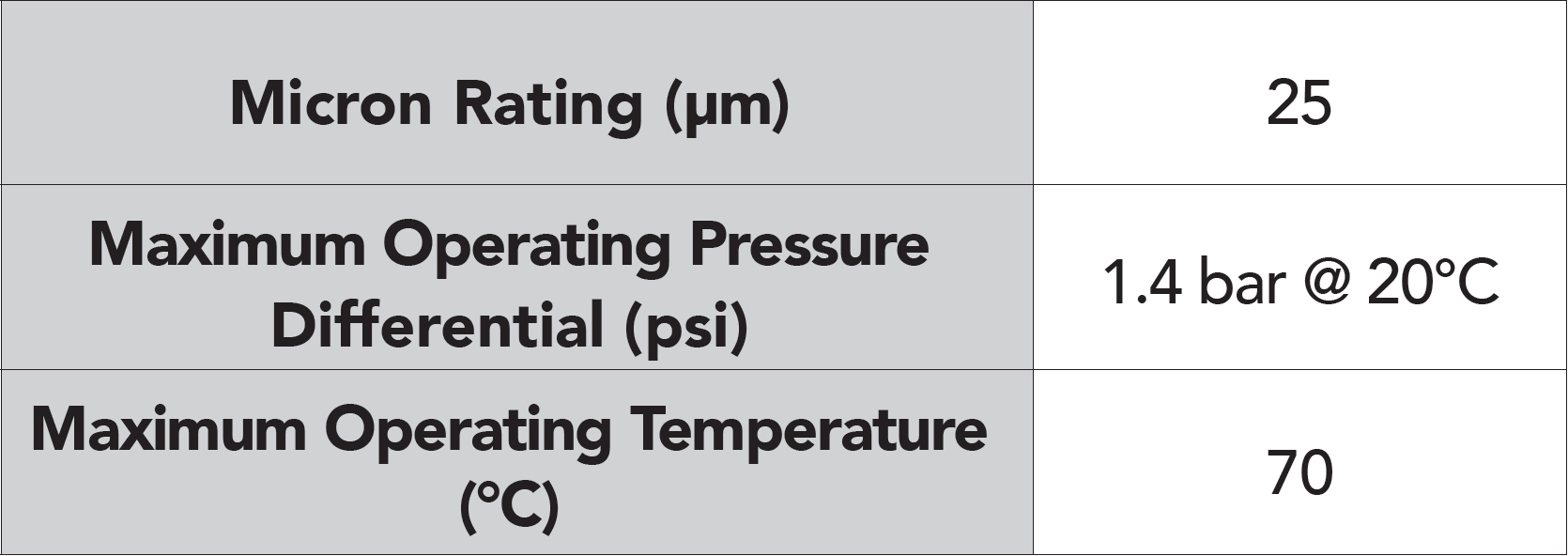

Features & Information
For the polishing of trace hydrocarbons, following primary oil removal phases.
FAQs - SRIF
Organic compounds composed primarily of carbon and hydrogen atoms. They are fundamental building blocks of many important substances found in nature, such as petroleum, natural gas, coal and various types of fossil fuels.
Removing hydrocarbons from your supply is often desired for several reasons:
- Environmental Compliance: hydrocarbons can be harmful to the environment if released improperly, hence many industries have regulations.
- Product Quality: their presence can adversely affect the performance of products, for example in manufacturing of electronic components or semiconductors.
- Safety Concerns: they are flammable substances.
- Process Efficiency: can interfere with industrial processes by causing fouling, clogging, or reduced efficiency of equipment.
- Improved Taste and Odour: Removes unpleasant tastes and odours from water, making it more enjoyable to drink and cook with.
- Chlorine Removal: Highly effective at removing chlorine and its byproducts from water.
- Chemical Filtration: Reduces or removes various chemical contaminants from water.
- Adsorption of Contaminants: Activated carbon has a large surface area and porous structure, allowing it to effectively adsorb a wide range of impurities.
- Versatility: Used in a variety of applications, including residential, commercial, and industrial settings.
- Cost-Effective Solution: Carbon filters offer a cost-effective filtration solution compared to other complex filtration technologies.
Carbon filters work by utilising activated carbon, a highly porous material with a large surface area. When water passes through the carbon filter, contaminants come into contact with the activated carbon. The contaminants are either adsorbed onto the carbon’s surface or undergo chemical reactions that neutralise them. This process effectively removes impurities such as chlorine, volatile organic compounds (VOCs), odours, and some heavy metals, resulting in cleaner and purer water.
